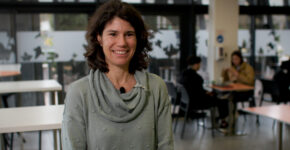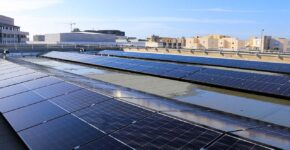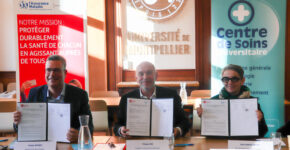Environmental issues and social responsibility
Welcome to the page dedicated to environmental issues and social responsibility at the University of Montpellier!
Legacy and commitment: A tradition of progress
The University of Montpellier has more than 800 years of science and innovation behind it. In keeping with this tradition, the University has been committed to and actively involved in environmental and social issues for many years. The UM's ongoing commitment is recognized both nationally and internationally, whether through the THE Impact ranking, in which the University is ranked first nationally in "health and well-being," or the prestigious Shanghai ranking, which highlights research and teaching quality in ecology, water management, and agriculture.
Large-scale mobilization
The University's commitment is resolutely focused on people. Internally, this is reflected in the adaptation of teaching to contemporary issues and the implementation of numerous initiatives for both students and staff, particularly in favor of inclusivity, equality, and diversity. This commitment permeates the institution and its entire community through the development of several framework documents focused on ecological transition and social responsibility, each with its own visibility and objectives.
The implementation of action plans resulting from these strategic documents requires, on the one hand, a strong command of various fields: social, societal, and ecological; and, on the other hand, a significant investment in line with the recommendations of organizations such as the Department, the IPCC, the High Council for Climate, and standards such as sustainable development and social responsibility (SD&SR). Far from being purely financial, these investments are above all human.
Indeed, these diagrams and plans cannot stand alone; it is the entire university community that brings them to life and implements them. From project leaders to users of the systems, the entire community plays a vital role in achieving the objectives set. The UM promotes, shares, and constantly develops this shared vision by supporting staff in the development of social and environmental skills. The aim is to foster a culture of curiosity and learning that extends beyond the university-student relationship and permeates all levels of the organization.
Beyond the University
Externally, UM contributes to the dissemination of knowledge by organizing conferences, debates, events, and exhibitions open to schoolchildren and the general public. As a public institution, UM seizes every opportunity to strengthen the links between science and society. In the face of future challenges, this connection is essential in order to put the benefits of the advances, knowledge, and innovations developed by the University of Montpellier and its laboratories at the service of society. This is why it actively promotes responsible research and is committed to enriching its teaching by integrating the challenges of ecological transition and sustainable development.
The University is thus training tomorrow's leaders to better take into account the social, societal, and environmental specificities of our time. Education is a pillar of how our societies function, and the University is proud to promote high-quality training and teaching that is firmly rooted in the challenges of today and tomorrow. Beyond training, it is also about promoting curiosity wherever it may be found.’expresses finds, particularly in moments of exchange and sharing between researchers and civil society, which the UM encourages by organizing various events, which are opportunities to strengthen and perpetuate the links between science and society.




